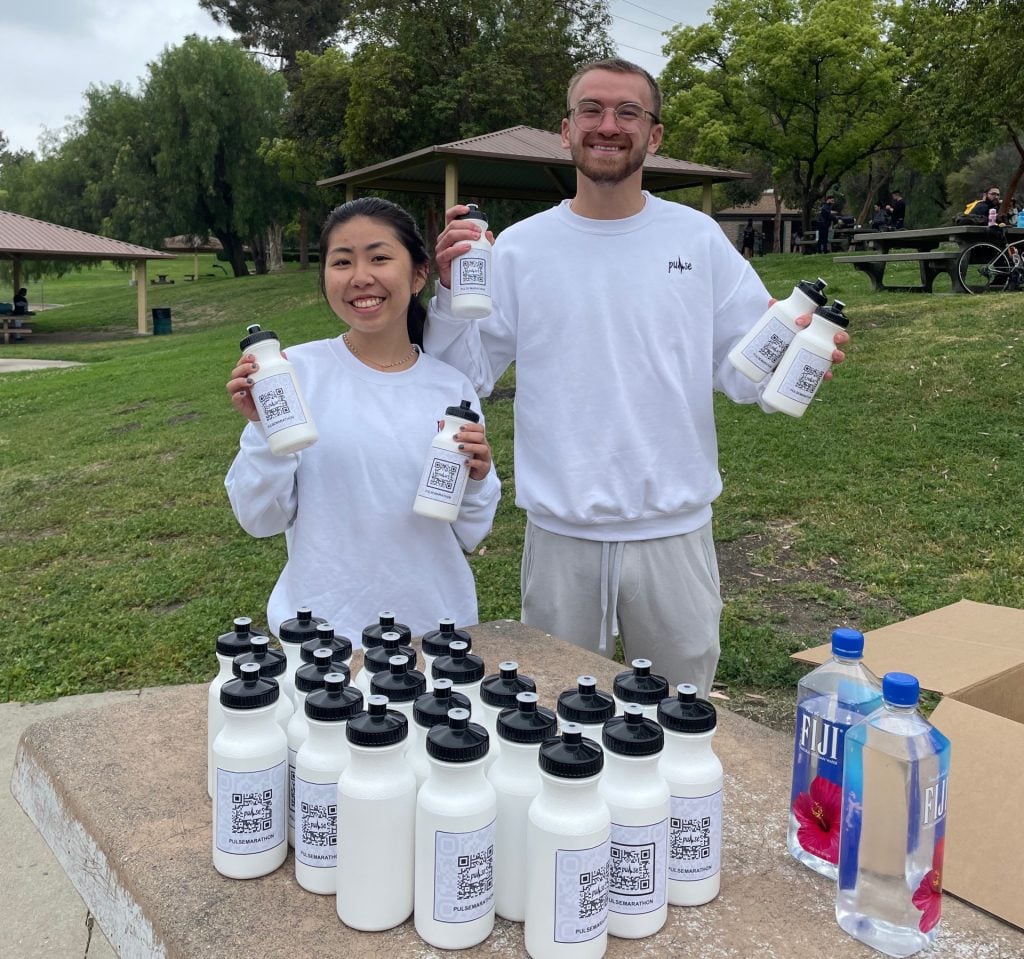Drip: Sports Tech Company Takes the Guessing Game Out of Hydration

A startup in the inaugural cohort of Transform, a data science and AI accelerator, Drip is working to solve chronic dehydration in athletes with its unique sweat-sensing wearable device.
“Taking leaps of faith and discipline are very much ingrained in my identity,” said Karishma Bali, founder and CEO of Drip, a sports tech company building products that help athletes achieve peak performance.
Bali inherited this trait from her parents and experiences in her childhood, during which there were both personal and financial prosperity and hardships.
Her parents took a leap of faith and left conventional careers to buy a “boring business” – typically stable and profitable ventures such as car washes, laundromats, and vending machines. Their business ultimately failed due to multiple reasons, including racism, timing, and partnerships, said Bali, and ended in bankruptcy.
During this two-year timeframe, the family moved from an average middle-class home to a five-story estate and then to a two-bedroom apartment. At the same time, Bali’s younger sister, Rachel, who has autism, ADHD, and developmental delay, was not speaking.
Fast forward to the present day, and the entrepreneur shares with great pride the comeback her immigrant parents made through hard work, her experiences being the elder sister to Rachel, and how she’s consistently used tenacity to maneuver through her own path in life.
“These experiences showed me the value of grit, hard work, and determination,” Bali said. “I’ve used that to navigate my own pivots as I’ve worked toward my professional goals.”
Those goals include becoming an entrepreneur. Bali has bootstrapped an athleticwear-turned-sportstech company that offers hydration-monitoring wearables that provide real-time data on sweat rate and sodium concentration, which athletes can use to customize a hydration strategy.
Founded on Sweat Equity
An athlete herself, Bali came up with the idea for her product while training for the 2020 New York City Marathon. She was out for a 15-mile run during a hot Chicago summer day when she started to feel dizzy and almost passed out from dehydration.
“I was frustrated because this wasn’t my first rodeo and I was wondering why, with all the wearables that existed at the time and despite all these technological advancements, hydration is still a guessing game,” she said. “I was building a brand geared toward endurance athletes at the time and decided hydration tech and sweat tech was the way to go.”
To that end, she partnered with Chelsea Monty-Bromer, founder of hydration sensor startup SweatID, to produce a line of athletic apparel. Bali met Monty-Bromer serendipitously and currently sits on the advisory board of her company. The clothing line embeds the sensor – about the size of a dishwasher tablet – where sweat concentrates most: the back center band of shorts, joggers, and workout pants for men and women, as well as the back and front center of women’s sports bras.
The sensor pairs with an app where athletes input preliminary biometric information such as height, weight, age, body type, and blood type. Users also include location, which the app uses to pull in temperature conditions since running in Chicago is very different from running in Miami or Los Angeles.
Before a workout, athletes set a timer to indicate length of workout. The sensor becomes activated by sweat, sending continuous, real-time information on sodium level and sweat rate to the user’s phone or other Bluetooth-enabled device until the end of the workout. Athletes then use this data to design a personalized hydration strategy.

For Coaches, Athletes and, Mmore
Bali and a team of student interns launched a marketing campaign at the 2022 LA Marathon through a gorilla marketing campaign called “Project QR Water Bottle.” The group handed out branded water bottles that included a QR code that brought them to the company’s website. They polled athletes as they handed the water bottles out, asking if they would find hydration information valuable.
“We received an overwhelming positive response,” said Bali. “That really helped validate that this business had legs and could grow.”
Drip currently sells products wholesale to seven fitness retailers and studios in the Chicago, Cleveland, and Miami area. They have also begun to partner with universities, with plans to further expand their relationship with coaches, sports performance directors, and athletic trainers.
“When you look at universities, they’re doing the same thing they did 50 years ago to measure fluid loss – basically weighing athletes before and after a workout,” said Bali. “But when you sweat you don’t just lose fluid, you lose nutrients your body needs. That’s what makes our sensors so valuable. The data they provide is unparalleled in today’s sweat tech and hydration market.”
While Bali plans to keep the focus on athletes in the near term, long term she sees potential in multiple markets, including the med tech space, such as long-term nursing care facilities, and the military.
“Seventy-five percent of all Americans are chronically dehydrated,” she said. “And many publications state that this problem is elevated in the remote world we live in now. Think about how many hours go by in meetings or in calls before you realize you haven’t had any water yet. We’d like to help solve that problem.”
Drip is one of three startups selected for the first cohort of the Transform accelerator.
>> Applications for Cohort 2 of Transform will be open April 17, 2023.